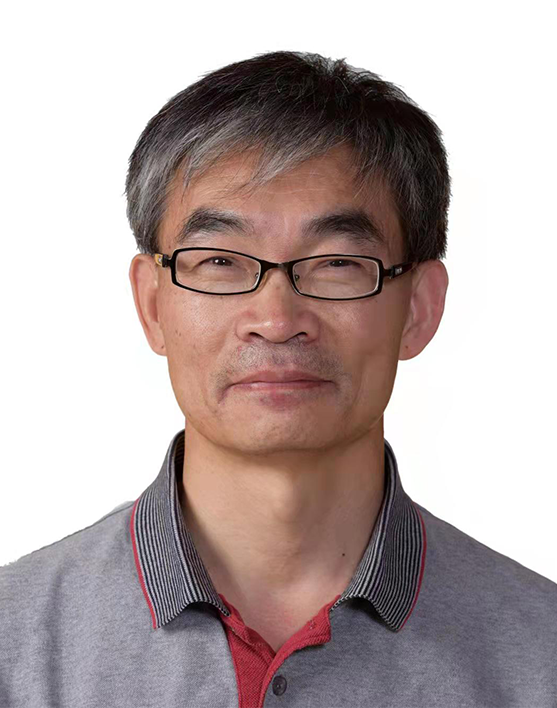1.Shi, J., & Xu, F. (1999). Intelligence, motivation and creative thinking of supernormal and normal children. Australasian Journal of Gifted Education. 8(2),11-15.
2.Shi, J., & Zha, Z. (2000). Psychological research on and education of gifted and talented children in China. In K. Heller, F. Moenks, R. Sternberg, & R. Subotnik (Eds.), International handbook of research and development of giftedness and talent (2nd ed.) (pp. 757-764). Amsterdam: Elsevier Science Ltd.
3.Shi, J., & Liu, Z. (2000). Teaching English as a foreign language in China since 1978. Teachers of English to Speakers of Other Languages, 14(2), 15-18.
4.Shi, J. (2003). A natural perspective on giftedness. In U. Anuruthwong, S. Hiranburana, & C. Piboonchol. (Eds.) Igniting children potential and creativity: Proceedings of the 7th Asia-Pacific Conference on Giftedness. (pp. 138-140). Bangkok: October Printing Co., Ltd.
5.Shi, J. (2004). Diligence makes people smart: Chinese perspectives of intelligence. In R. J. Sternberg (Ed.). International Handbook of Intelligence (pp. 325-343). Cambridge University Press.
6.Shi, J., & Zhai, J. (2004). Gifted education in primary school. In D. Boothe, & J. Stanley (Eds.). In the Eyes of the Beholder: Cultural and Disciplinary Perspectives in Giftedness (pp. 119-125). Texas: Prufrock Press
7.Shi, J. (2004). Intelligence current in creative activities. High Ability Studies, 15(2), 170-185.
8.Zhang, Q. & Shi, J. et al (2006). Intelligence and information processing during a visual search task in children: An ERP study. NeuroReport, 17(7), 747-752.
9.Shi, J., & Liu, Z. (2006). Film course makes schooling more attractive: An example of educational reform in China. Gifted Education International, 22, 78-85.
10.Shi, J., & Chen, N. (2006). Enlightening the mathematical talents of children in kindergarten. Gifted and Talented International, 21(1), 22-29.
11.Liu, T., Shi, J., Zhang, Q., Zhao, D., Yang, J. (2007). Neural mechanisms of auditory sensory processing in children with high intelligence. Neuroreport. 18(15):1571-1575.
12.Zhang, Q., Shi, J., Luo, Y., Liu, S., Yang, J., Shen, M. (2007). Effect of task complexity on intelligence and neural efficiency in children: an event-related potential study. Neuroreport. 18(15):1599-1602.
13.Zhang, Q., Shi, J., Fan, Y., Liu, T., Luo, Y., Sang, H., Shen, M. (2007). An event-related brain potential study of children’s conservation. Neuroscience Letters. 43(1), 17-20.
14.Shi, J.*, Li, Y., & Zhang, X. (2008). Self-concept of gifted children aged 9-to 13-years-old. Journal for the Education of the Gifted, 31(4):481-499.
15.Zhang, Q., Shi, J.*, Fan, Y., Liu, T., Luo, Y., Sang, H., Shen, M. (2008). An event-related brain potential study of children’s conservation. Neuroscience Letters, 431, 17-20.
16.Liu, T., Shi, J.*, Zhao, D., & Yang, J. (2008). The relationship between EEG band power, cognitive processing and intelligence in school-age children. Psychology Science Quarterly, 50(2): 259-268.
17.Liu, T., & Shi, J.* (2008). Event-related potentials during preattentional processing of color stimuli. Neuroreport. 19(12):1221-1225.
18.Liu T., Shi, J.*, Zhao D, Yang J. The event-related low frequency activity of highly and average intelligent children. High Ability Studies, 2008,19,131-139.
19.Han R, Li S, Shi JN (2009). The Territorial prior-residence effect and children’s behavior in social dilemmas, Environment and Behavior. 41(5), 644-657.
20.Shangguan F., & Shi, J.* (2009). Puberty timing and fluid intelligence: A study of correlations between testosterone and intelligence in 8- to 12-year-old Chinese boys. Psychoneuroendocrinology, 34, 983 – 988.
21.Duan, X., Shi, J.*, Wu, J., Mou, Y., Cui, H., & Wang, G. (2009). Electrophysiological correlates for response inhibition in intellectually gifted children: A Go/NoGo study. Neuroscience Letters, 457, 45-48.
22.Fan, Y., & Shi, J.* (2009). The challenge-and-response model of normal anxiety. Journal of Adult Development, 16, 66–75.
23.Duan, X. J., Shi, J.N.*, & Zhou, D. (2010).Developmental Changes in Processing Speed: Influence of accelerated education for gifted children. Gifted Child Quarterly, 54(2), 85-91.
24.Duan, X. J., Wei, S. W., Wang, G. Q., & Shi, J. N*.(2010). The relationship between executive function and intelligence on 11- to 12-year-old children. Psychological Test and Assessment Modeling, 52 (4), 419-431.
25.Lu L., Weber, H., Spinath, F., and Shi, J.* (2011). Predicting school achievement from cognitive and non-cognitive variables in a Chinese sample of elementary school children. Intelligence, 39, 130-140.
|

